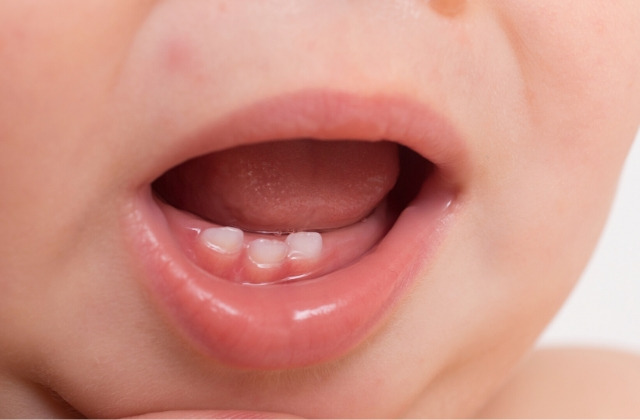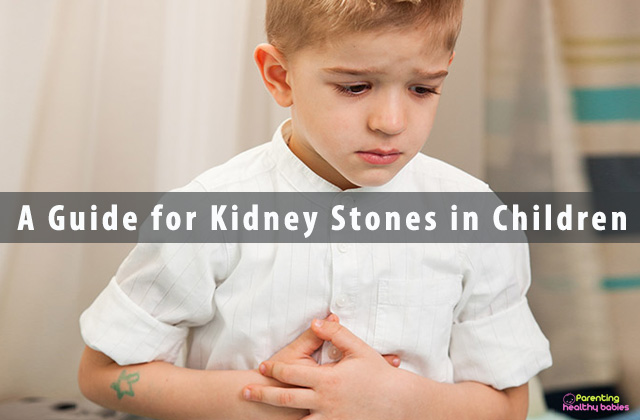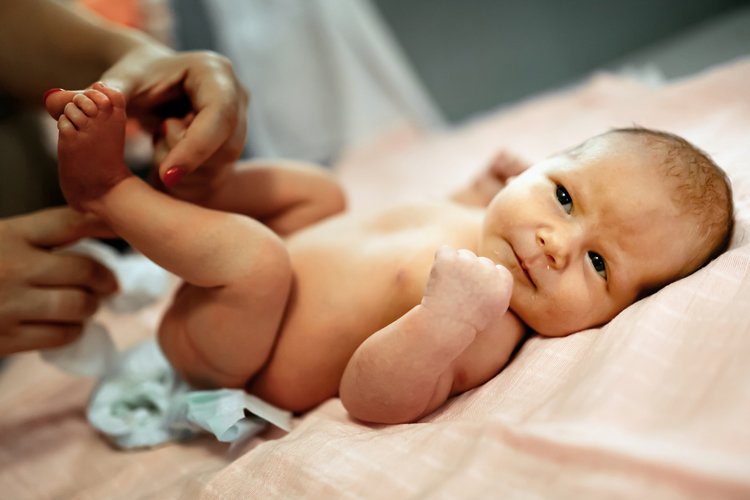Smiles are found beautiful due to shining white teeth. Teething is a normal process seen during the development of the very first years of life. Usually, babies get their first tooth between 4 months to 7 months of age. The first teeth to appear are lower incisors located in the bottom on the front side. Normally babies are born toothless and during their infancy, they get their milk teeth but in some babies, one or more teeth can be seen itself after the birth. Such teeth are known as natal teeth. Natal teeth are less common to occur.
Read More: Baby Born with Teeth – Causes, Risk and Treatment
In this article:
Natal Teeth
Causes and Prevalence of Natal Teeth
Risk Factors associated with Natal Teeth
Types of Natal Teeth
Complications of Natal Teeth
Early Teething
When to go for Treatment?
Baby Born with Teeth: Causes, Types, and Risks
Natal Teeth
These are determined as teeth found during birth. It is considered to be an anomaly associated with many superstitions in different ethnic groups. The occurrence of natal teeth is about 1 in every 2000 births. It can be shocking for parents for a baby having teeth already. But there is no matter of concern if the teeth are not interfering with the feeding or act as choking hazard.
Read More: Are Baby Teeth as Important as Adult Teeth?
Causes and Prevalence of Natal Teeth
It is mysterious to find natal teeth. But certain conditions may lead to an increase in the risk of developing natal teeth in the baby. Such anomaly is seen in children with cleft palate or lip. Following syndromes are some of the causes of natal teeth :
- Hallerman-Streiff
- Pierre Robin
- Sotos
Ellis-Van Creveld
It can be seen due to endocrine disturbances (excessive secretion of pituitary, thyroid or gonads). It can also be due to the dependent activity of osteoblast cells inside the gums. Congenital syphilis infection can also cause an early eruption of teeth or even can cause retardation of the eruption.
Hypovitaminosis
Fever along with exanthemata during pregnancy is found to increase the eruption rate.
Superficial Positioning of the Tooth Germ
Polychlorinated biphenyls and dibenzofuran seem to increase the risk of developing natal teeth.
Read More: 11 Serious Mistakes Parents Make With Their Kids’ Teeth
Risk Factors associated with Natal Teeth
Along with the above-mentioned medical syndrome few risk factors are also found to be associated with increased risk to cause natal teeth. Around 15 percent of babies born with teeth have close family members who had natal teeth when they were born too including parents and siblings.
Talking about prevalence this is commonly seen in females when compared to males. Malnutrition in mothers during pregnancy can also be considered another risk factor.
Types of Natal Teeth
While some babies are born with teeth, the circumstance is not clear enough. There are four types of natal teeth:
- Fully developed but loose, crowns affixed to only a few root structures
- Very loose without any root structure
- The tiny tooth just emerging from the gums
- Evidence of teeth about to cut from the gums
In most cases, only a single tooth is found. Being born with multiple teeth is found to be even rarer. Lower incisors along with upper incisors are very rare but can be seen. Less than percent of babies are born with molars as their natal teeth.
The type of natal teeth helps to determine the risk of complications.
Read More: 11 Natural Remedies to Stop Teeth Grinding (Bruxism) in Children
Complications of Natal Teeth
- The most common is inhaling the loose tooth and getting dislodged in the airway during breastfeeding.
- Ulceration to the tongue
- Difficulty in feeding
- Refusal to feed due to pain caused by the natal teeth
- Injury to the nipple and the areola
Early Teething
Sometimes babies are not born with teeth but develop soon after birth. Generally within the first month of their life. Such types of teeth are known as neonatal teeth. According to many types of research, neonatal teeth are even rarer than natal teeth. This can easily be said as there are higher chances of the baby have natal teeth than babies have neonatal teeth.
Symptoms of teething usually occur during the initial three months of age. But baby won’t get any actual teeth for a month or more. Neonatal teeth are quick to appear after birth and the bay may not exhibit normal telltale signs of teething like drooling the saliva, fussiness and biting their fingers.
Read More: 15 Common Toddler Tooth Problems and Remedies
When to go for Treatment?
Tight natal teeth are usually left as they cause no harm. But in case of loose teeth having no roots, surgical removal may be recommended by the doctor. Following types of natal teeth put the baby at risk :
- Choking by accidental swallowing of the loose teeth
- Tongue injuries
- Feeding issues
- Causing injury to mother while breastfeeding
X-ray helps in determining whether the loose tooth has a solid root structure or not. If no root structure is found then the removal is mandatory.
Conclusion
Being born with teeth is rare but can occur. It is advisable to consult a doctor if the baby is born with natal teeth. Any loose tooth requires surgical removal to prevent health-related hazards and complications.
References
https://www.ncbi.nlm.nih.gov/pmc/articles/PMC3467875/
https://www.ncbi.nlm.nih.gov/pmc/articles/PMC3162856/













